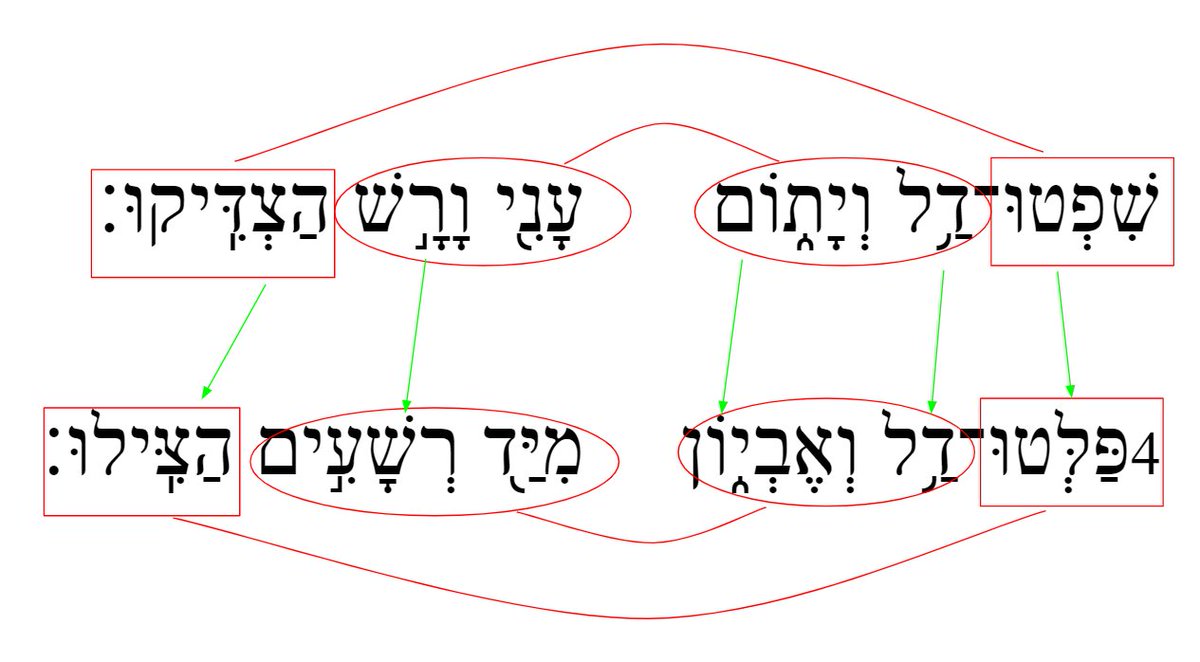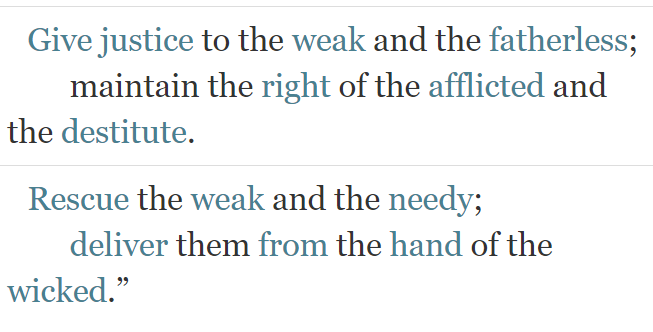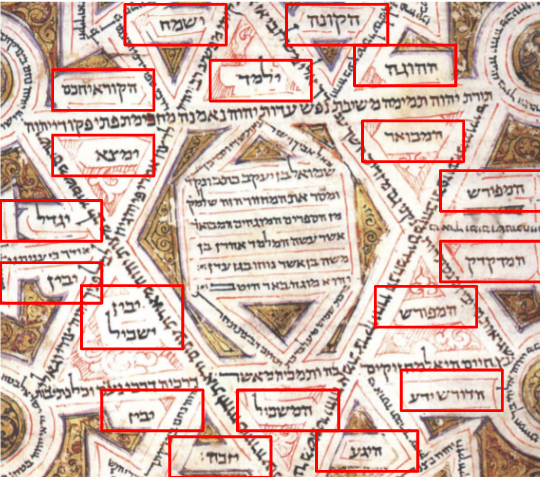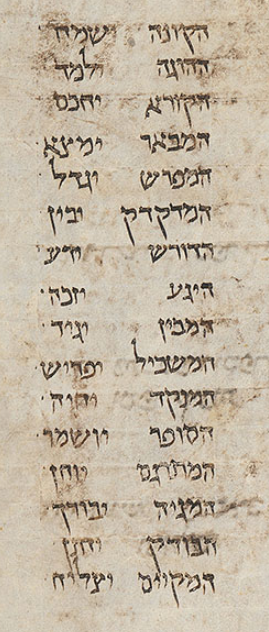
This is beautiful!
This little #manuscript seems to be written by a regular, non-professional, member of the Jewish community of Fustat, Egypt, about 1000 years ago.
They made a little shorthand manuscript of #Psalms, for their own personal use.
This little #manuscript seems to be written by a regular, non-professional, member of the Jewish community of Fustat, Egypt, about 1000 years ago.
They made a little shorthand manuscript of #Psalms, for their own personal use.

This person knew the Psalms pretty well, so could abbreviate most of the words by chopping off the last letter or two (which seems more impressive when you remember that #Hebrew words tend to be short: say, 2-6 letters in the main).
This little snippet is from Psalm 9: 17-18.
But here, the writer's knowledge of the book of Psalms has actually led them astray...
Do you see the line in the image with lots of dots over all the letters? Those are erasure dots: (s)he wants, in effect, to cross out that line.
But here, the writer's knowledge of the book of Psalms has actually led them astray...
Do you see the line in the image with lots of dots over all the letters? Those are erasure dots: (s)he wants, in effect, to cross out that line.
Why? B/c that line is not from Psa 9, but from Psa 59!
What?
Well, Psa 9:17 ends w/ the word סלה 'selah'; Psa 9:18 opens with the word ישובו 'they return'.
There's only one other place in the whole Hebrew Bible where a verse ends w/ סלה and the next opens w/ ישובו - Psalm 59.
What?
Well, Psa 9:17 ends w/ the word סלה 'selah'; Psa 9:18 opens with the word ישובו 'they return'.
There's only one other place in the whole Hebrew Bible where a verse ends w/ סלה and the next opens w/ ישובו - Psalm 59.
So, while copying סלה: ישובו from Psalm 9, the writer's mind jumped to that same sequence in Psalm 59, and they wrote out an entire verse from there before realising their memory had led them astray.
So then they 'dotted out' that verse, and wrote the correct one after it.
So then they 'dotted out' that verse, and wrote the correct one after it.
"I have hidden your word in my heart..."
"Instruction from your mouth is better to me than thousands of pieces of gold and silver"
"The judgements of HaShem are true, and altogether right - They are more precious than gold... they are sweeter than honey"
#treasurethetext
"Instruction from your mouth is better to me than thousands of pieces of gold and silver"
"The judgements of HaShem are true, and altogether right - They are more precious than gold... they are sweeter than honey"
#treasurethetext
• • •
Missing some Tweet in this thread? You can try to
force a refresh












